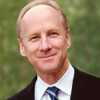Several partnerships ULI has established over the past several months—including those with the World Economic Forum (WEF), Aspen Institute, and Centre for Liveable Cities in Singapore—are presenting new opportunities for the Institute to think big, think ahead, and think beyond the norm. While these are all very different organizations, they share a common interest with ULI in improving the quality of life in urban areas. Working with these partners greatly strengthens ULI’s ability to influence the decision making that is shaping investment and development in cities around the world.
With the WEF, we will pursue a series of initiatives to raise awareness of urban development practices that foster economic prosperity, environmental sustainability, and a high quality of life in cities around the globe. WEF is an independent international organization committed to improving the state of the world by engaging business, political, academic, and other leaders of society to shape global, regional, and industry agendas.
As part of the partnership, I am serving on a newly formed WEF steering board focusing on urban issues. It includes nearly 20 global leaders in the fields of architecture, urban planning, design, and development. The board will inform the WEF’s work on identifying transformational models for infrastructure and urban development. We are visiting four cities each year, the first of which was Tianjin, China, in June. The board’s work in Tianjin involved analyzing how the city can make the transition from a manufacturing to a service hub, and how the city can creatively address congestion resulting from its explosive urban growth.
The Tianjin visit was a great starting point for the board’s comprehensive effort to study the challenges and opportunities of urbanization, changing demographics, infrastructure, housing needs, and other urban issues, with a particular emphasis on emerging markets and developing regions. While these issues are long familiar to ULI, the WEF partnership offers a different lens for analysis that can only lead to a more insightful understanding and a more effective outcome.
Another initiative resulting from the ULI-WEC partnership was a capital markets roundtable, an invitation-only event held June 25 at ULI’s headquarters in Washington, D.C. The roundtable, consisting of about 25 of the world’s top thought leaders in real estate finance, examined the impact of post–financial crisis regulations mandated by the Dodd-Frank Wall Street Reform and Consumer Protection Act, and of Basel III, an international set of reform measures developed by the Basel Committee on Banking Supervision to strengthen the regulation, supervision, and risk management of the banking sector.
Similar in spirit to the WEF partnership, ULI has partnered with the Aspen Institute to host the “Global Forum on the Culture of Innovation: Growing More Ideas per Square Foot,” set for September 5 and 6 in San Diego. This partnership was initiated by the Aspen Institute following a forum with a similar theme held last year by ULI and ULI San Diego.
The innovation topic fits well with the Aspen Institute’s mission, which is to foster values-based leadership by encouraging individuals to reflect on the ideals and ideas that define a good society, and to provide a neutral and balanced venue for discussing and acting on critical issues. At this year’s event, ULI and the Aspen Institute will bring together thought leaders and top decision makers in the real estate development industry to discuss how to harness talent, place, and culture to drive innovation—and create real estate value—in the new economy.
Still another partnership demonstrating how we’re expanding our reach is with the Centre for Liveable Cities in Singapore. Established in June 2008 by two Singapore ministries—National Development, and Environment and Water Resources—the center brings together Singapore’s expertise in sustainable urban development across public and private sectors. Our work with the center aims to leverage Singapore’s experience in effective governance, integrated urban planning, resource management, affordable housing, efficient transportation management, and environmental sustainability.
A key part of the center’s work involves facilitating the sharing of best practices and learning among cities in the Asia Pacific region and globally through conferences, forums, seminars, and workshops. A hallmark of this effort is its annual World Cities Summit, which explores aspects of high-density, economically competitive, and highly livable cities for the future.
I was a panelist at this year’s summit, which focused on demographic, economic, and environmental factors that are having a dramatic, lasting impact on the built environment, not just in Asia’s rapidly growing cities, but around the world. The event, which drew senior policy makers, business leaders, practitioners, and futurists, dealt with issues related to the interplay of people and technologies affecting urban growth, with a specific emphasis on leadership and governance, and sustainable and ecofriendly cities.
The urban issues that so many organizations such as the WEF, Aspen Institute, and Centre for Liveable Cities are exploring have long guided ULI’s program of work. But the perspectives of these stakeholders will broaden ULI’s thought leadership and strengthen the Institute’s influence on decisions related to community building. I have high hopes for what we can learn from—and achieve with—our partners to create vibrant cities that will be cherished by all generations of the 21st century.





